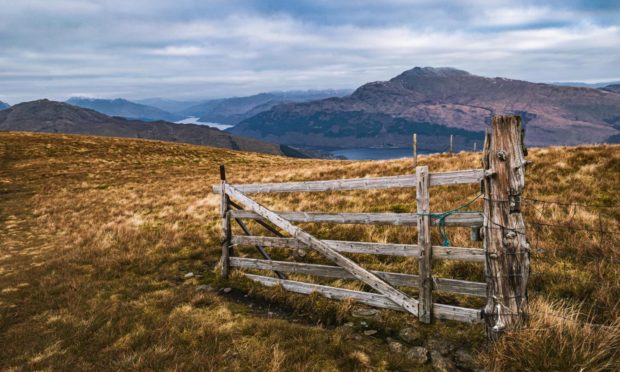Recent reports and published correspondence have revealed a long running dispute over access to an estate in Ardnamurchan.
Campaigners claim that gates to long-established walking routes between communities have been locked, in breach of our statutory right to roam. The landowner, meanwhile, is the first to seek criminal prosecution of those exercising that right.
It is not the first dispute since the Scottish Land Reform Act of 2003 established rights of public access to most land and inland water. We couldn’t rock up to landowners’ front gardens for a picnic. But we were free to seek recreation where we wanted, as long as we acted responsibly and weren’t interfering with the day-to-day activities on the ground. There were exemptions, but the Act put a duty on landowners to respect these rights.
There were bound to be disagreements over what constituted responsible access or legal limits to it. Council access officers were appointed and local access forums established to resolve local difficulties.
If they didn’t work, a civil case before a sheriff would be the next step, followed by the Sheriff Appeal Court. Then it would be on to the Court of Session, the highest civil court in the land.
Disputes over access should be a civil matter
That’s the route Drumlean Estate near Aberfoyle took, following years of disagreement with the Loch Lomond and Trossachs National Park Authority over its order in 2013 to unlock three gates and take down a sign warning: “Danger Wild Boar”.
Renyana Stahl Anstalt, the Liechtenstein-based owner of Drumlean, appealed. A sheriff upheld the appeal because the locked gates had been in place, and the sign erected, before the 2003 Act; and he accepted the estate was trying to manage the land responsibly and not deter access.

But the Court of Session eventually ruled access rights did apply and, importantly, the landowner’s rationale (trying to manage the land responsibly) was not relevant.
The Lord President, Lord Carloway, explained: “Section 14 (of the 2003 Act) provides that the landowner cannot do certain acts ‘for the purpose or for the main purpose of preventing or deterring any person’ from exercising his or her access rights under the Act.”
He continued: “Whatever motive, intention or reasons may have been proffered for doing so, and whether they were genuinely held, the gates were and are locked for the purpose of preventing or deterring access.”
The most senior judge in the land clearly viewed any dispute over access provisions in the 2003 Act to be unquestionably a civil matter.
Accusations of criminality cannot become commonplace
In Ardnamurchan in 2019, however, two local residents were reported to the police for alleged aggravated trespass – a crime created by the Criminal Justice & Public Order Act 1994, against those going on to land to intentionally obstruct, disrupt, or intimidate others from carrying out lawful activities. It applies across the UK, but was brought in mainly to deal with hunt saboteurs or organisers of raves in England.
The retired couple said they had been walking the path in question unhindered for 40 years, and that their “crime” had been to pass within a few yards of a biomass woodchip shed, built in recent years. Access rights do not extend to the area around buildings, but local campaigners point out that a planning condition for the shed stipulated public access would be maintained
It’s obviously unfortunate that a landowner feels the only way to protect his estate’s interests is to make allegations of criminality against people who claim they were just out for a walk
The couple were interviewed under caution by police in early 2020 and a report sent to the procurator fiscal. But they only learned no action was being taken from a media report last month.
Wherever blame lies in this particular case, it’s obviously unfortunate that a landowner feels the only way to protect his estate’s interests is to make allegations of criminality against people who claim they were just out for a walk.
It would be concerning, however, if this became a common estate response, with Police Scotland having to ask citizens to justify their exercise of rights established by the Scottish Parliament.
Our access rights are the envy of others
Reports of police apparently acting in the interests of the powerful would be corrosive to public confidence. You will know that if you remember the footage of filmmaker Anthony Baxter being arrested and handcuffed by Grampian Police in 2010.
He was then fingerprinted, had DNA samples taken and his equipment impounded, following complaints (uncorroborated by independent witnesses) by Trump Organisation staff, claiming that he had been on their Aberdeenshire land without permission. Grampian Police later apologised.
Scotland’s access rights are the envy of others and should be protected. So the Justice Secretary should issue guidance to the police on aggravated trespass and its relationship to access rights, or consider legislative change.
David Ross is a veteran Highland journalist and author of an acclaimed book about his three decades of reporting on the region

